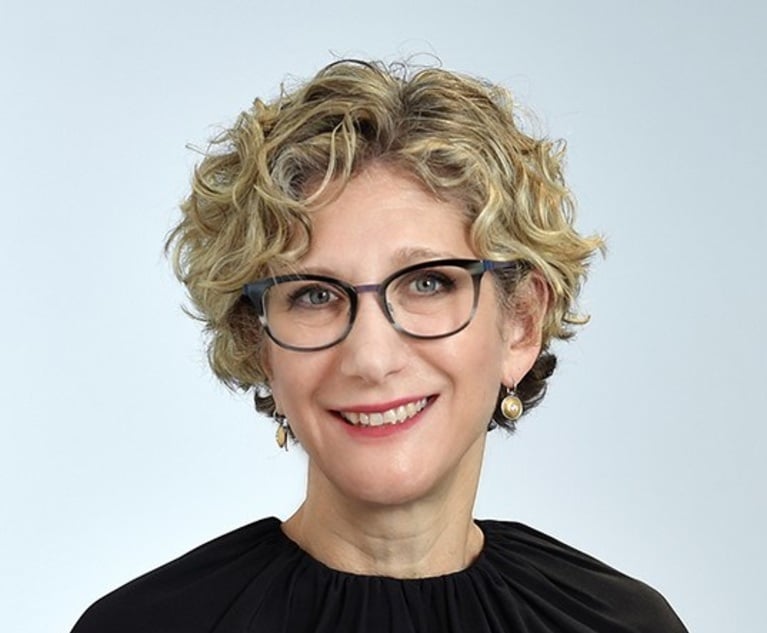Guardians of the Rule of Law or Professional Enablers?
As the Pandora Papers come to light, this professor asks how much the legal profession is using its ethical judgement.
October 04, 2021 at 10:40 AM
6 minute read
Expert OpinionIn the past two years, report after report – from international bodies like the OECD, domestic governments like the U.K. and non-profits like Transparency International – have expressed concerns about lawyers facilitating corruption as 'professional enablers.' Yet only a generation ago, lawyers were seen as champions in the fight against corruption.
However that change has come to pass, it is a problem. Society needs lawyers to be respected as impartial upholders of the rule of law. If lawyers are perceived as putting the interests of their clients, and their ability to earn fees, distinctly and regularly above the interests of justice, public and governmental trust in the system begins to break down.
This is not about the small number of lawyers and firms who deliberately break the law. They are doing wrong, and should be sanctioned. More problematic is the perception that 'professional enabling' is widespread among senior lawyers and their top-flight firms. It consists of exploiting loopholes, skirting the fringes of legality, and often just offering standard legal services – but all on behalf of corrupt oligarchs and kleptocrats.
The services are myriad. Sometimes, specially designed for the world's corrupt elite: reputation laundering, setting up complex webs of shell companies to disguise identities and financial flows, litigating against journalists who may make uncomfortable allegations against their clients. Note that none of this is illegal – these are merely specialist services provided to people of dubious reputation.
Then there are standard legal services. Many of the world's corrupt elite run large businesses based on state monopolies in their own countries, which expand into overseas M&A or listings – all of which requires legal services. If an oligarch corruptly obtained a privatised state company, but then runs it cleanly, while at the same time using his wealth to prop up a corrupt presidential crony, where precisely is the corruption or the illegality? And if there are only distant and unsubstantiated rumours, they may seem like a very reasonable client to take on.
Much of the focus on professional enablers has arisen from the world's increased attention to money laundering. But many of those regulations do not apply to the legal profession, and there is an important question here about the legality of the funds. If a kleptocrat has so captured the state that the judiciary and laws are bent to his will, how likely is a conviction?
You can see the problem. Lawyers in major financial centres feel they can legitimately take on clients who have not been convicted in their country of origin. Yet this opens the doors for corrupt oligarchs and kleptocrats to use legal services to cleanse their reputations and put their money in safe havens.
In rare circumstances a kleptocrat is caught out – for example, by being served an Unexplained Wealth Order in the UK. Then a top legal team will be at hand. Never mind the likelihood that the kleptocrat is a serial human rights abuser and the money has been misappropriated: everyone surely has a right to a legal team.
As you would expect, the lawyers who act for oligarchs and kleptocrats have a well-honed defence. In fact, three defences: access to justice; innocent until proven guilty; and equality before the law. These are important principles and we neglect them at our peril. But life is not quite that simple. These principles were designed to protect the disadvantaged and downtrodden; they are now also used to protect those who are highly corrupt.
This minefield of legal ethics, which draws its legitimacy from another age, is not fit for purpose in the globalised world. Justice for the overseas kleptocrat in the UK or US may represent a gross injustice to the victims of their corruption back home. How do we relate that to access for justice?
Some of this is not new. Murderers have always needed lawyers to defend them, who have been duly criticised. A mafia boss has always been able to hire a top firm when the cops make an arrest.
Two key things have changed. First, the scene has become much more global. Law firms, with franchises or offices in multiple jurisdictions, must weigh up their reputations and business prospects in multiple markets, not just at home. Taking the moral high ground in New York or London may lead to loss of business in Dubai or Hong Kong. Likewise their clients come from new markets – places like Azerbaijan, from where thirty years ago it would have been inconceivable that large funds would flow into the world's major financial centres.
Secondly, we all have a much deeper understanding of the nature of kleptocracy and oligarchs and misappropriation of state assets. It is much harder to turn a blind eye and plausibly suggest that vast assets from Equatorial Guinea should be treated on a par with entrepreneurial wealth from Silicon valley.
There are two options to improve the situation. Option one is simple. Laws and regulations should be tightened and enforced, to reign in the worst behaviour, including some which is not currently not illegal.
Option two is to re-invigorate the basis on which the legal profession has been revered for generations: ethical judgement. To start this process, the legal profession needs to accept that there is a problem; but at present there is denial, and merely a tired recycling of those old defences.
However, change can come from within. Junior lawyers who have not yet been forced to make the choice between integrity and a lucrative client; anti-corruption professionals in public and private sector; lawyers in enforcement agencies and parliaments.
They are all members of their industry associations, and could stimulate a review of how the long-standing principles of justice can be used to reinforce rather than undermine the rule of law.
Professor Robert Barrington works at the Centre for the Study of Corruption, University of Sussex, United Kingdom
NOT FOR REPRINT
© 2024 ALM Global, LLC, All Rights Reserved. Request academic re-use from www.copyright.com. All other uses, submit a request to [email protected]. For more information visit Asset & Logo Licensing.
You Might Like
View All
What to Expect From Teresa Ribera, the EU‘s New Competition Commissioner
6 minute read

Trending Stories
- 1Call for Nominations: Elite Trial Lawyers 2025
- 2Senate Judiciary Dems Release Report on Supreme Court Ethics
- 3Senate Confirms Last 2 of Biden's California Judicial Nominees
- 4Morrison & Foerster Doles Out Year-End and Special Bonuses, Raises Base Compensation for Associates
- 5Tom Girardi to Surrender to Federal Authorities on Jan. 7
Who Got The Work
Michael G. Bongiorno, Andrew Scott Dulberg and Elizabeth E. Driscoll from Wilmer Cutler Pickering Hale and Dorr have stepped in to represent Symbotic Inc., an A.I.-enabled technology platform that focuses on increasing supply chain efficiency, and other defendants in a pending shareholder derivative lawsuit. The case, filed Oct. 2 in Massachusetts District Court by the Brown Law Firm on behalf of Stephen Austen, accuses certain officers and directors of misleading investors in regard to Symbotic's potential for margin growth by failing to disclose that the company was not equipped to timely deploy its systems or manage expenses through project delays. The case, assigned to U.S. District Judge Nathaniel M. Gorton, is 1:24-cv-12522, Austen v. Cohen et al.
Who Got The Work
Edmund Polubinski and Marie Killmond of Davis Polk & Wardwell have entered appearances for data platform software development company MongoDB and other defendants in a pending shareholder derivative lawsuit. The action, filed Oct. 7 in New York Southern District Court by the Brown Law Firm, accuses the company's directors and/or officers of falsely expressing confidence in the company’s restructuring of its sales incentive plan and downplaying the severity of decreases in its upfront commitments. The case is 1:24-cv-07594, Roy v. Ittycheria et al.
Who Got The Work
Amy O. Bruchs and Kurt F. Ellison of Michael Best & Friedrich have entered appearances for Epic Systems Corp. in a pending employment discrimination lawsuit. The suit was filed Sept. 7 in Wisconsin Western District Court by Levine Eisberner LLC and Siri & Glimstad on behalf of a project manager who claims that he was wrongfully terminated after applying for a religious exemption to the defendant's COVID-19 vaccine mandate. The case, assigned to U.S. Magistrate Judge Anita Marie Boor, is 3:24-cv-00630, Secker, Nathan v. Epic Systems Corporation.
Who Got The Work
David X. Sullivan, Thomas J. Finn and Gregory A. Hall from McCarter & English have entered appearances for Sunrun Installation Services in a pending civil rights lawsuit. The complaint was filed Sept. 4 in Connecticut District Court by attorney Robert M. Berke on behalf of former employee George Edward Steins, who was arrested and charged with employing an unregistered home improvement salesperson. The complaint alleges that had Sunrun informed the Connecticut Department of Consumer Protection that the plaintiff's employment had ended in 2017 and that he no longer held Sunrun's home improvement contractor license, he would not have been hit with charges, which were dismissed in May 2024. The case, assigned to U.S. District Judge Jeffrey A. Meyer, is 3:24-cv-01423, Steins v. Sunrun, Inc. et al.
Who Got The Work
Greenberg Traurig shareholder Joshua L. Raskin has entered an appearance for boohoo.com UK Ltd. in a pending patent infringement lawsuit. The suit, filed Sept. 3 in Texas Eastern District Court by Rozier Hardt McDonough on behalf of Alto Dynamics, asserts five patents related to an online shopping platform. The case, assigned to U.S. District Judge Rodney Gilstrap, is 2:24-cv-00719, Alto Dynamics, LLC v. boohoo.com UK Limited.
Featured Firms
Law Offices of Gary Martin Hays & Associates, P.C.
(470) 294-1674
Law Offices of Mark E. Salomone
(857) 444-6468
Smith & Hassler
(713) 739-1250










